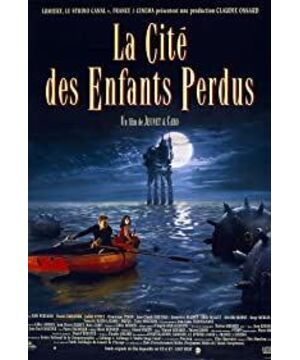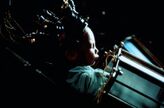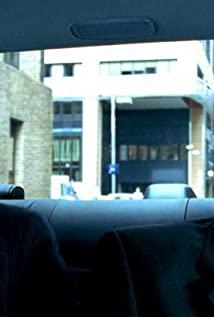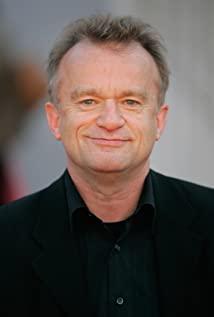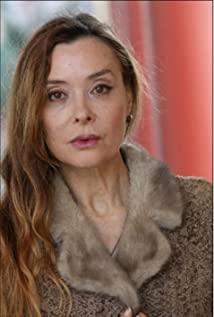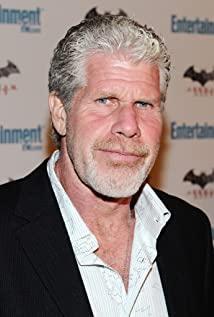In Genette’s films, there are actually no real adults and real children. Adults are sometimes giant-body and innocent children, while children are often with atrophied bodies and weird adults. Ya and the big guy, this pair of cute CP has been extremely appropriately confirmed.
The conversation between Mia and his companions at the dock further confirmed this:
All the children, he is an adult.
Mia is very big, but he is not an adult, and you are not as small as your appearance. You and you are the same.
Not to mention that the "perfect wives and children" that the scientific madmen created for themselves eventually became small dwarfs, and the circus master who was addicted to drugs for money was healed by Mia's kindness and wept bitterly... In fact, Rene’s other movies also have similar characteristics. We don’t have to go to great lengths to list examples, not to mention the childlike adults in "Enjoy the Game", just thinking of Rene’s queen actress Tatu is enough. , Who can say that her spiritual eyes are not the innocence and cunning of a child?
One of the concentrated manifestations of this ubiquitous "child complex" in this film is the scene of pagan worship, which is reminiscent of the scene of Hitler's Nazi party rally, and the inflammatory speech of the leader in front of the church is even more proof. This conjecture (his tone really resembles Hitler):
Me, Gabriel Marie
Come into this world with your eyes open
What I found is a dog's world
Lascivious dog
So the creator sent me to earth
Take the opportunity to recover the power usurped by humans
Brothers, you fight with me
If we take the "Long Engagement" filmed by Renai in 2004 into our vision, many questions seem to have answers——
Why is the scene of this film gloomy and dilapidated, and there is no sunshine all year round? Why do torpedoes often appear in the turbid and dirty sea? Why is the steampunk style full of devastation and desolation? ...
This kind of setting should be a reenactment of the traumatic memory of World War II. It is no wonder that most of the church members of this organization lack eyes. In addition to metaphors for its blind fanaticism and ignorance, it should also carry the cost and epitome of war. So we will I can better understand why adults are so fragile and even have no hope of living through drugs, while children are too precocious when they lose support. This is probably due to the background of the era of World War II. In "The Long Engagement" It also shows the mental trauma of those artillery purgatory to adults. There are reasonable explanations for the nihilism and anarchy tendencies that are often revealed in Genette's films (the madman of science shouts between the pillars "Empty is endless", and the soldiers also sang the anthem of anarchism in "The Long Engagement") , The haze of World War II has been shrouded in Genette's movies for a long time.
So how to dispel this haze? Is there really no way of salvation? Genette set his sights on the child, just as "Brain Flower" (Uncle Aiwen) said before Mia's bedtime, "Go to the dream, in the hands of the devil, and find the true place of the child ", this sentence is simply hot One of the important themes in Nate's movie style, as for the film, it reflects this theme more concentratedly in terms of structure and concept.
"Dream" and "Demon" are indeed opposite characters that often change their coats in Genette movies, such as the various games in "Enjoy the Game" and the evil world of capitalists, and the fantasy of love in "The Long Engagement" Stories and wars, the corrupt military, the dream city and the besieged prison in "Angels Love the Beauty"... In this confrontation, what Genette wants to find and pursue may be this " Where the child really is".
It reminds me of the "principle of contrast between beauty and ugliness" summarized by Hugo-flowers in the ruins, the sense of sacredness in the desolation-the innocence of children and the cruelty of the world must always resist forever opposition, in this increasingly profound contrast In the meantime, what Genette wants may be a kind of purification and redemption, just as Hugo wishes: beauty defeats ugliness, and ugliness transforms into beauty.
Finally, be brave, kid, be brave!
View more about The City of Lost Children reviews


